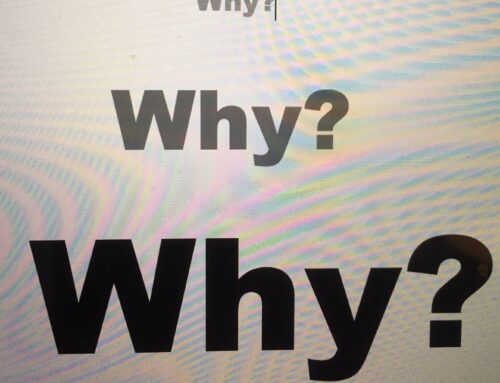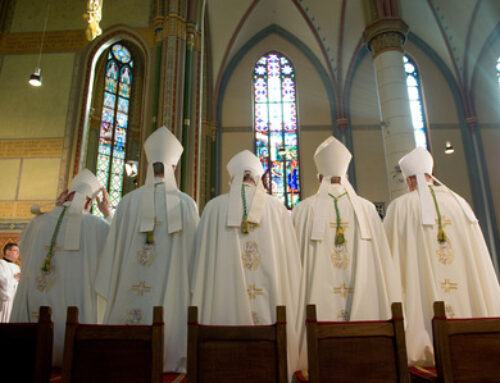
He eventually turned into the church driveway ahead of me, and we proceeded to park next to each other. As I got out of my car and started walking, he said something about my being in too great a hurry. I replied over my shoulder that he had been driving unnecessarily slow.
As the Mass unfolded, I found myself wondering what to say if I encountered him later in the parking lot: That driving to Mass should be a purposeful activity and not a leisurely sightseeing experience? That he had been inconsiderate of the people driving behind him? And so on. Half a dozen times my mind diverged in that direction and I had to drag it back to the celebrant.
As the time to receive the Eucharist grew closer, I realized that all my projected comments had one thing in common—they were unchristian. When I recited the Lord’s Prayer with the other congregants, the words “forgive us our trespasses as we forgive those who trespass against us” reminded me that I should stifle my angry thoughts and forgive the man completely, unconditionally, and immediately.
A few moments later, while walking up the aisle to receive the Eucharist, I determined to do much better than the bare minimum of forgiving the man.
A little while later, as I approached my car in the parking lot, I saw the man approaching his. Without hesitating, I said, “I apologize for my impatience before Mass.” He shook my hand, thanked me, and went on to explain why he had been driving so slow in the residential neighborhood. He said he lived some miles away in a similar neighborhood and recently lost his dog to someone driving too fast on his street. I agreed that was certainly an understandable reason for exercising care on the road
When I left the parking lot and drove down that same street, I drove more slowly and made a mental note to do so in the future. I also pondered what had happened. Even while in church I had been thinking uncharitably about the man. If I had continued in that mood, I would have left Mass ready to say something unpleasant to him—even after receiving Holy Communion. And I would never have heard and appreciated his story.
Happily, my mood had changed. But what changed it? And how can that change be understood in the context of Catholic theology?
The response of some Catholics would be, “The Eucharist provided you with the sacramental grace that is bestowed through the reception of any of the seven sacraments.” That is sound theology but it doesn’t fully explain what happened to me because my mood had significantly changed before I received communion. (The argument could be made that sacramental grace can be conferred in anticipation of receiving a sacrament, but that idea creates a logical minefield that most theologians would prefer to avoid.)
The change that was underway before I received communion can be explained by another form of grace known in Catholic theology as actual grace. (Many other Christian denominations do not make a distinction between sacramental and actual grace. For them there is just one grace that is no less “amazing” for its singularity.)
Actual grace may be defined as the inspiration to wisdom and goodness embedded in human experience. It is available not just to Catholics or Christians in general but to every human being, regardless of religious affiliation or lack thereof. Actual grace is the gift that enables believers to understand their faith more deeply and to live it more concretely. It also can lead unbelievers to belief
As my experience with the careful driver illustrates, all that is necessary to receive actual grace is to rein in ego, acknowledge that our first impressions may be shallow or mistaken, and open our minds and hearts to wisdom greater than our own.
Copyright © 2014 by Vincent Ryan Ruggiero. All rights reserved



